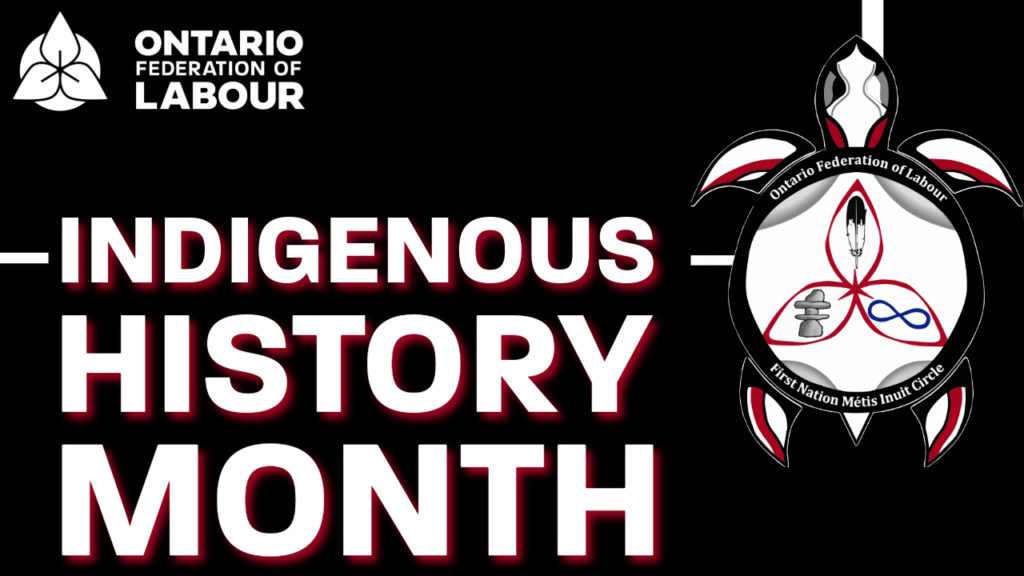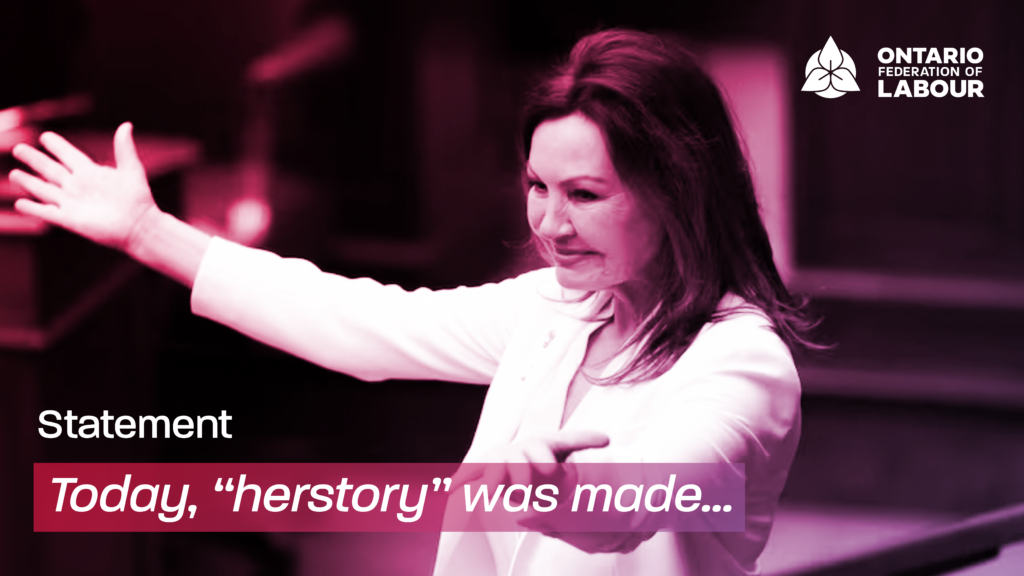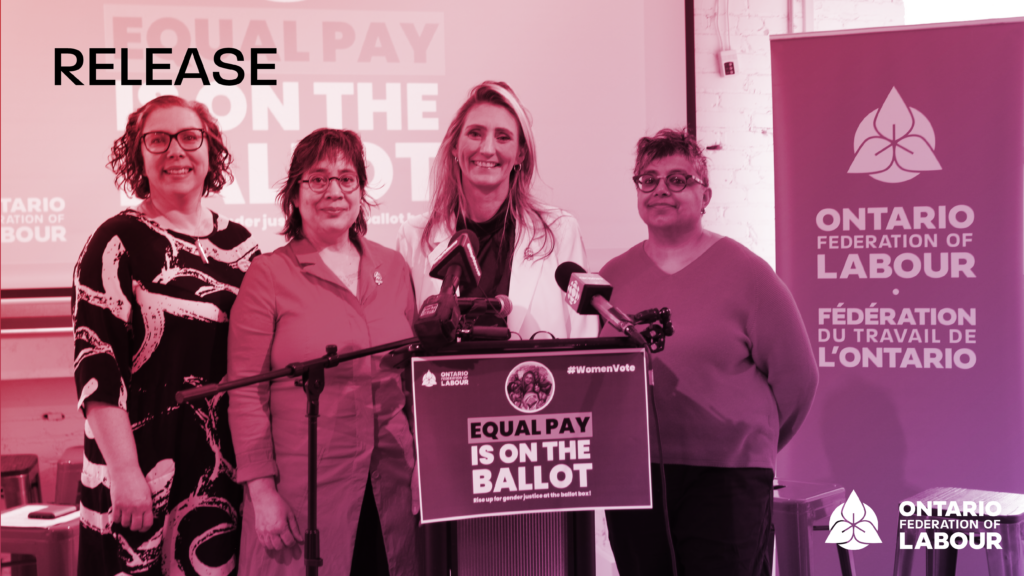
Each week of Indigenous History Month, we encourage you to join us in learning a new fact about Indigenous History and culture, attend an event, and take action.
WEEK 1:
June 1
Fact: June is National Indigenous History Month in Canada, an opportunity to learn about the unique cultures, traditions and experiences of First Nations, Inuit and Métis. It’s a time to honour the stories, achievements and resilience of Indigenous Peoples, who have lived on this land since time immemorial and whose presence continues to impact the evolving Canada.
People in Canada celebrate National Indigenous History Month every June and recognize National Indigenous Peoples Day on June 21. These are great opportunities to acknowledge Indigenous Peoples, to learn about their histories, cultures and ways of life.
FACT: The House of Commons designated June as National Aboriginal History Month in 2009. The name was changed to National Indigenous History Month in 2017.
Event: Indigenous People’s Day Market
When: June 4, 2024 from 11:00 AM to 4:00 PM (FREE)
Where: Women’s College Hospital
76 Grenville Avenue
Logo: In 2023 members of the OFL FNMI Circle decided to change the existing logo to update the use of the outdated and inappropriate term “aboriginal” and replace it with the new name the FNMI Circle. The Circle enlisted the services of indigenous artist Jessica Sommers.
Born of Odanak Abenakis and Metis descent in 1977, Jessica Somers was raised in a nurturing family with 3 siblings. She was greatly influenced by her grandmother who enjoyed creating scenic and wildlife paintings. Her father’s passion for carpentry and his hard work ethics and determination are what attributed to her success as an artist today.
.
Internally driven, and emotionally charged, Jessica’s original abstract art and mixed media pieces are unique and earthy. Jessica enjoys working with a wide variety of mediums. Explosive abstract art paintings, contemporary mixed media collage art, reclaimed barn wood, spiritual native paintings, peeled poplar bark, birch bark paintings, turkey feathers and her intricate antique milk jugs and saws are just some of the styles you will uncover. Most recently, Jessica has been creating more intricate, non-conventional pieces that engage viewers to develop creative thinking, visual literacy and engage discussion of Indigenous issues that her people are facing today. She has a deep respect for traditional and cultural teachings of Indigenous people.
Jessica worked with Circle members to create the current logo. The turtle represents Turtle Island. The trillium on its back represents Ontario. The eagle feather, infinity symbol and inukshuk are First Nations, Metis and Inuit symbols.
WEEK 2:
June 15
Event: Na-Me-Res Traditional Pow Wow
When: June 15 from 12:00 PM
Where: Fort York, Grand Entry
Fact: Grassy Narrows video: Grassy Narrows
OFL Resolution: The OFL will coordinate efforts between interested affiliates, communities, and organizations to develop and promote a safe drinking water campaign that targets union members and the general public within one year of this convention.
Week Three:
June 18
Event:Three months until Grassy Narrows River Run
Resolution 52: The OFL will work with affiliates to encourage them to invite First Nations Land Defense Alliance to educate union members about how Ontario’s Mining Act threatens Indigenous sovereignty and the internationally recognized rights of Indigenous peoples.
June 19
Event: Celebrate Indigenous History Month
Three Sisters Indigenous Crafts Market from 11:00 AM – 2:00 PM
Cultural Celebration from 12:00 PM – 1:00 PM
Where: Terrace – 120 Adelaide St. W.
June 21
Indigenous People’s Day
June 22
Event: Indigenous Vendors Market
Where: Richmond Hill Public Library – 1 Atkinson Street
When: June 22, from 10:00 AM – 4:00 PM
Week Four
Document: Indigenous Knowledge Systems
When considering the use of Indigenous Knowledge Systems, be sure that…
The information comes from a reputable source that provides evidence of vetting accuracy (not from broad general Google searches)
Information and content is properly cited to reference a legitimate Indigenous individual and/or community/specific nation and consent has been provided.
Ensuring correct terminology and names are used for nations and communities.
There is no use of possessive language (Canada’s Indigenous Peoples) or acronyms (e.g. FNMI)
Canadian citizenship is not being imposed on Indigenous peoples and nations. (Canadian Indigenous Peoples)
Indigenous Peoples are not referred to in the past tense, but rather have always lived on these lands and continue to.
Material (e.g., texts, media) about Indigenous identities, perspectives, knowledges are in first voice, by the individual who identifies within the community about which they are speaking.
Information presents Indigenous peoples and/or Indigenous Knowledge Systems as sophisticated, diverse and complex.
Information does not tokenize, minimize, or perpetuate stereotypes about Indigenous peoples and/or Indigenous knowledge systems
The term ‘story’ refers to methods for knowledge transference (e.g., geological records, historical accounts, mathematical ideas, etc.) and not myths, legends or lore.
Creation stories or the other stories are only used if properly sourced by legitimate and specific Indigenous people and/or community and/or nation (e.g., where the story was told, when it was told and who told it).
Achievements and contributions or Indigenous Peoples are included.
Activities do not engage in cultural/spiritual practices unless they are delivered by a recognized Indigenous community member
CUPE: https://cupe.ca/water-life-fight-clean-drinking-water-continues


